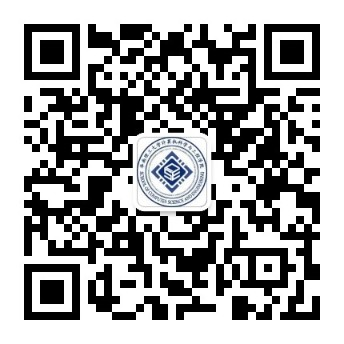《多媒体技术》教学大纲
课程代码 | 045101712 |
课程名称 | 多媒体技术 |
英文名称 | Multimedia Technologies |
课程类别 | 专业领域课 |
课程性质 | 选修 |
学时 | 总学时:40 上机学时:8 实验学时:0 实践学时:0 |
学分 | 2.5 |
开课学期 | 第六学期 |
开课单位 | 计算机科学与工程学院 |
适用专业 | 所有专业 |
授课语言 | 英语 |
先修课程 | 无 |
毕业要求(专业培养能力) | 本课程对学生达到如下毕业要求有如下贡献:
|
课程培养学生的能力(教学目标) | 完成课程后,学生将具备以下能力:
|
课程简介 | 本课程着重于为学生培养学生对多媒体理论与技术的理解。本课程讲述最新的交互多媒体技术系统,其中包括不同类型的数据源、应用以及理论操作。本课程讲述的基本技术包括多媒体数据表示,数据压缩,数据检索,以及数据传输。完成课程后,学生可以对多媒体技术的基本概念有初步了解,以及对不同技术在不同场景下的应用有比较好的判断。 |
教学内容与学时分配 | 多媒体现状介绍:6学时 信号处理介绍:3学时 多媒体数据表示方法:3学时 基本压缩技术:2学时 离散余弦变换:2学时 JPEG图像压缩:2学时 MPEG视频压缩:2学时 MPEG-4视频压缩:2学时 MPEG音频压缩:2学时 基于内容的图像检测:2学时 学生报告:7学时 |
实验教学(包括上机学时、实验学时、实践学时) | 基于内容的图像检测程序实现:8学时 |
教学方法 | 课程教学以课堂教学、课外作业、综合讨论、网络以及授课教师的科研项目于积累等共同实施。 |
考核方式 | 本课程注重过程考核,成绩比例为: 平时成绩和课堂表现:20% 课程大作业:40% 期末考试(开卷):40% |
教材及参考书 | 《Fundamentals of Multimedia》, Ze-Nian Li and Mark S.Drew, China Machine Press, 2004. |
制定人及制定时间 | 何盛烽,2019.04 |
“Multimedia Technologies” Syllabus
Course Code | 045101712 |
Course Title | Multimedia Technologies |
Course Category | Specialty-related Course |
Course Nature | Elective Course |
Class Hours | Total: 40 Computer courses: 8 |
Credits | 2.5 |
Semester | The sixth semester |
Institute | School of Computer Science and Engineering |
Program Oriented | All |
Teaching Language | English |
Prerequisites | No |
Student Outcomes (Special Training Ability) |
|
Teaching Objectives | On the completion of the course, students should be able to understand the fundamental concepts and make critique to the technologies associated with various multimedia data types such as image, video, audio, graphics and animation. |
Course Description | The course aims at providing students with theoretical and technical understanding on multimedia components and systems. The course covers contemporary, interactive multimedia technology systems, focusing on types, applications, and theories of operation. Basic technologies such as multimedia data representation, compression, retrieval and communication will be covered in an integrated manner. On the completion of the course, students should be able to understand the fundamental concepts and make critique to the technologies associated with various multimedia data types such as image, video, audio, graphics and animation. |
Teaching Content and Class Hours Distribution | Introduce to Multimedia:6 hours Signal Processing review: 3 hours Multimedia Data Representation: 3 hours Basic Compression Techniques: 2 hours Discrete Cosine Transform: 2 hours JPEG Image Compression: 2 hours MPEG Video Compression: 2 hours MPEG-4 Video Compression: 2 hours MPEG Audio Compression: 2 hours Content-based Image Retrieval: 2 hours Student Presentation: 7 hours |
Experimental Teaching | Implementation of Content-based Image Retrieval System |
Teaching Method | Combining lecture, tutorial, and course project. |
Examination Method | Continuous Assessment: 20% Course Project: 40% Examination (Open Book): 40% Examination Duration: 2 hours |
Teaching Materials and Reference Books | 《Fundamentals of Multimedia》, Ze-Nian Li and Mark S.Drew, China Machine Press, 2004. |
Prepared by Whom and When | Shengfeng He, 2019.04 |
《多媒体技术》实验大纲
课程代码 | 045101712 |
课程名称 | 多媒体技术 |
英文名称 | Multimedia Technologies |
课程类别 | 专业领域课 |
课程性质 | 选修 |
学时 | 总学时:40 上机学时:8 实验学时:0 实践学时:0 |
学分 | 2.5 |
开课学期 | 第六学期 |
开课单位 | 计算机科学与工程学院 |
适用专业 | 所有专业 |
授课语言 | 英语 |
先修课程 | 无 |
毕业要求(专业培养能力) | 本课程对学生达到如下毕业要求有如下贡献:
|
课程培养学生的能力(教学目标) | 完成课程后,学生将具备以下能力:
|
课程简介 | 本课程着重于为学生培养学生对多媒体理论与技术的理解。本课程讲述最新的交互多媒体技术系统,其中包括不同类型的数据源、应用以及理论操作。本课程讲述的基本技术包括多媒体数据表示,数据压缩,数据检索,以及数据传输。完成课程后,学生可以对多媒体技术的基本概念有初步了解,以及对不同技术在不同场景下的应用有比较好的判断。 |
主要仪器设备与软件 | 台式电脑,Matlab |
实验报告 | 针对课程大作业,撰写有关学生在完成课程大作业的技术细节,完成过程,完成成果等。 |
考核方式 | 本课程注重过程考核,成绩比例为: 平时成绩和课堂表现:40% 期末考试(闭卷):60% |
教材、实验指导书及教学参考书目 | 《Fundamentals of Multimedia》, Ze-Nian Li and Mark S.Drew, China Machine Press, 2004. |
制定人及发布时间 | 何盛烽,2019.04 |
《多媒体技术》实验教学内容与学时分配
实验项目编号 | 实验项目名称 | 实验学时 | 实验内容提要 | 实验类型 | 实验要求 | 每组人数 | 主要仪器设备与软件 |
1 | 图像检索 | 8 hours | 基于内容的图像检测程序实现 | 综合性 | 必做 | 1 | 电脑,Matlab |
“Multimedia Technologies” Syllabus
Course Code | 045101712 |
Course Title | Multimedia Technologies |
Course Category | Specialty-related Course |
Course Nature | Elective Course |
Class Hours | Total: 40 Computer courses: 8 |
Credits | 2.5 |
Semester | The sixth semester |
Institute | School of Computer Science and Engineering |
Program Oriented | All |
Teaching Language | English |
Prerequisites | No |
Student Outcomes (Special Training Ability) |
|
Teaching Objectives | On the completion of the course, students should be able to understand the fundamental concepts and make critique to the technologies associated with various multimedia data types such as image, video, audio, graphics and animation. |
Course Description | The course aims at providing students with theoretical and technical understanding on multimedia components and systems. The course covers contemporary, interactive multimedia technology systems, focusing on types, applications, and theories of operation. Basic technologies such as multimedia data representation, compression, retrieval and communication will be covered in an integrated manner. On the completion of the course, students should be able to understand the fundamental concepts and make critique to the technologies associated with various multimedia data types such as image, video, audio, graphics and animation. |
Instruments and Equipments | PC and Matlab |
Experiment Report | Write a report about the course project, including all the process of the program and results. |
Assessment | Continuous Assessment: 40% Examination (Close Book): 60% Examination Duration: 2 hours |
Teaching Materials and Reference Books | 《Fundamentals of Multimedia》, Ze-Nian Li and Mark S.Drew, China Machine Press, 2004. |
Prepared by Whom and When |
“Multimedia Technologies” Experimental Teaching Arrangements
No. | Experiment Item | Class Hours | Content Summary | Category | Requirements | Number of StudentsEach Group | Instruments, Equipments and Software |
1 | Image Retrieval System | 8 | Implementation of Content-based Image Retrieval System | Comprehensive | Compulsory | 1 | PC, Matlab |



